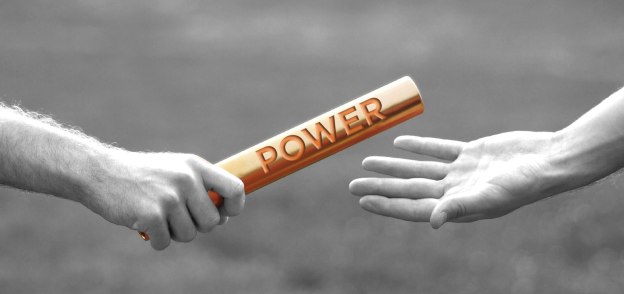Save for a brief period in 1975 Indian democracy has functioned in an exemplary fashion.
Democracy is a precious but fragile commodity that needs to be zealously guarded. It can crumble in a matter of moments if opportunistic political leaders violate the norms that govern the seamless functioning of a democracy.
Democracy is all about a peaceful transition of power effected by a fair and transparent election: grace on the part of the defeated, magnanimity on the part of the victor and a healthy respect for the electoral verdict are crucial. Inject an iota of doubt into this process and the whole system comes cascading down to become an ignominious failure.
The embarrassing tantrums of Donald Trump, the outgoing 45th President of the United States, post the 2020 electoral verdict, his outrageous claims of voter fraud and the ludicrous lawsuits pasted across several US states serve to demean the institution of democracy and raise questions about the feasibility of such a process. The robust foundation of the oldest democracy built up steadfastly over 200 years seemed to shudder momentarily under the sustained onslaught of an egoistic, maverick President, who could not gracefully accept defeat. In the process, the image of the United States as a standard bearer of democracy took a severe beating.
However, America is itself to blame to a degree for its current predicament. An outdated Electoral College system that in many instances relegates the popular vote to second place and an undue emphasis on the tradition of “concession” on the part of the loser have been craftily exploited by the current President to manufacture a state of political limbo. A uniform and independent system to conduct elections like the Election Commission of India is required.
Trump’s actions appear even more egregious and shameful when viewed from a global perspective. Established democracies like America owe it to the world to showcase the merits of democracy to enhance its spread across the globe. Even Richard Nixon, arguably one of the least liked and least ethical of US Presidents, was fully conscious of this role when he decided against a recount in the closely contested election of 1960 that he lost to JFK.
In his memoir, Six Crises, he writes: “If I were to demand a recount, the organization of the new Administration and the orderly transfer of responsibility from the old to the new might be delayed for months. The situation within the entire Federal Government would be chaotic… Then too, the bitterness that would be engendered by such a maneuver on my part would, in my opinion, have done incalculable and lasting damage throughout the country. And finally, I could think of no worse example for nations abroad, who for the first time were trying to put free electoral procedures into effect, than that of the United States wrangling over the results of our presidential election, and even suggesting that the presidency itself could be stolen by thievery at the ballot box, It is difficult enough to get defeated candidates in some of the newly independent countries to abide by the verdict of the electorate. If we could not continue to set a good example in this respect in the United States, I could see that there would be open-season for shooting at the validity of free elections throughout the world.”
Any commentary on modern democracy cannot be complete without a reference to India. Like America, India as the world’s largest democracy has a responsibility to demonstrate the success of democracy as a governing institution. For the greater part, Indian democracy comes out with flying colours. Save for a brief period in 1975, when the Congress Prime Minister Indira Gandhi suspended individual human rights and imposed a state of emergency following the nullification of her election by the Allahabad High Court, Indian democracy has functioned in an exemplary fashion.
Transition of power has been prompt and harmonious, without any hiccups. Even during the early 1990s, when India saw a parade of short-lived governments captained by leaders banding together a motley coalition of disparate parties, the transition was amicable and orderly.
In late 1999, after a successful tenure of 13 months, the BJP was forced to seek a vote of confidence as a result of a realignment of political parties. It was a test that the BJP lost by a single vote in a House of 540; a vote whose legitimacy was questionable, being cast by a Congress member (Giridhar Gamang) who had ceased for all intents and purposes to be a member of the august body after being elected to a state legislature.
Yet, without a murmur of protest, Atal Bihari Vajpayee (the Prime Minister from BJP) bowed down before the diktat of the Lok Sabha and put in his papers, in the larger interest of democracy. This incident must stand out as the ultimate shining moment of Indian democracy, especially when it is contrasted with the action of PM Indira Gandhi in 1975.
So, despite the accusations of authoritarianism and fascism thrown at the BJP, an objective scrutiny of the Bhartiya Janata Party’s political history from its inception to the present reveals an unwavering commitment to democratic principles. The BJP has assumed and relinquished constitutional authority manifold times, with each tenure being a text-book exposition of democratic norms and principles.
It is imperative that political leaders and political parties in democracies exhibit a high degree of responsibility and exercise due caution in formulating their response to an electoral verdict.
President Trump must put an end to his shenanigans and gracefully hand over Power to President-elect Joe Biden for the sake of America and in the larger interest of democracy.

